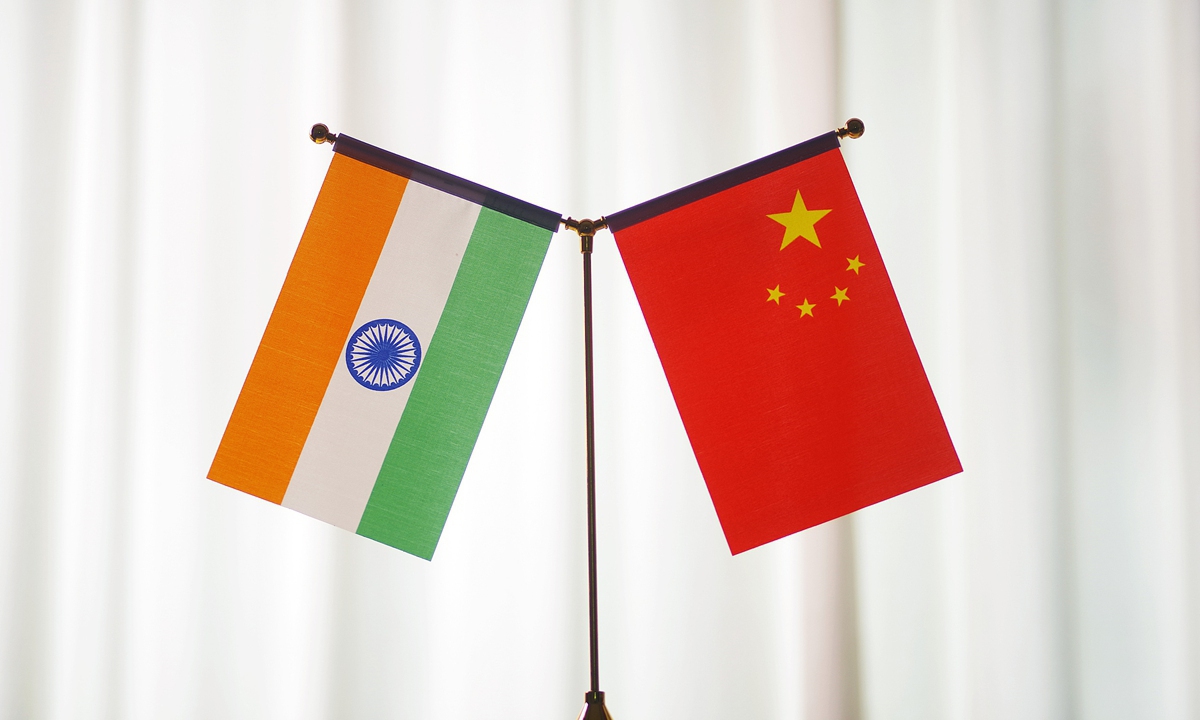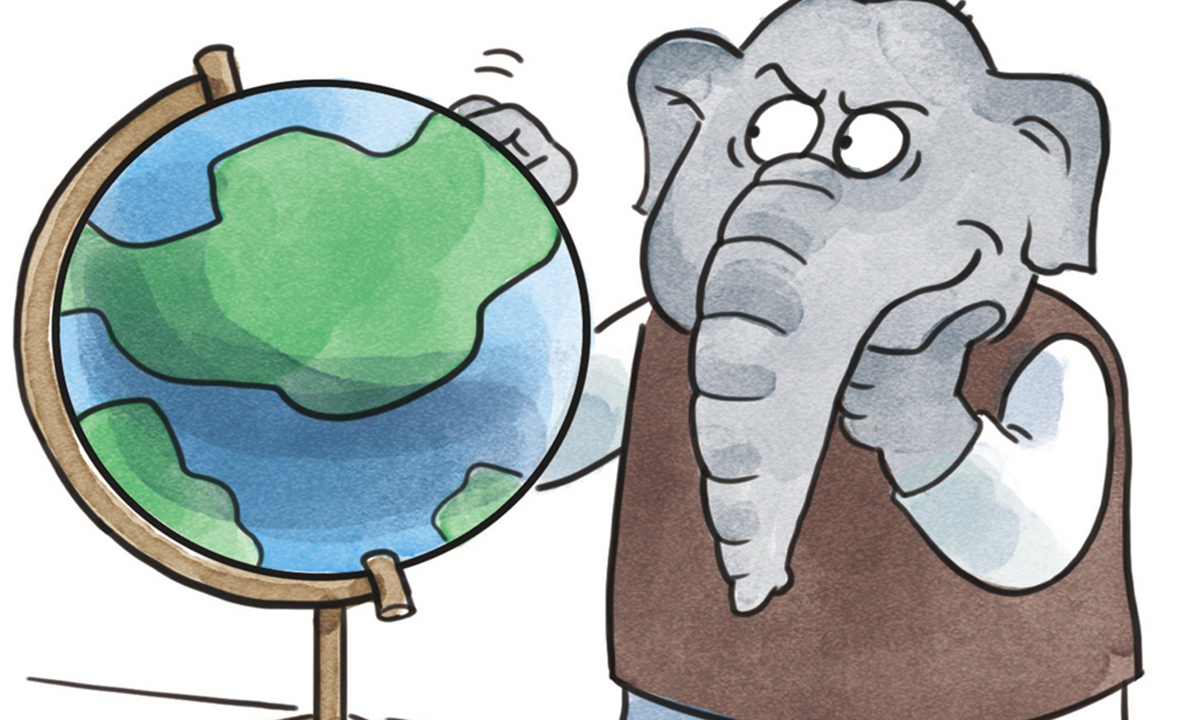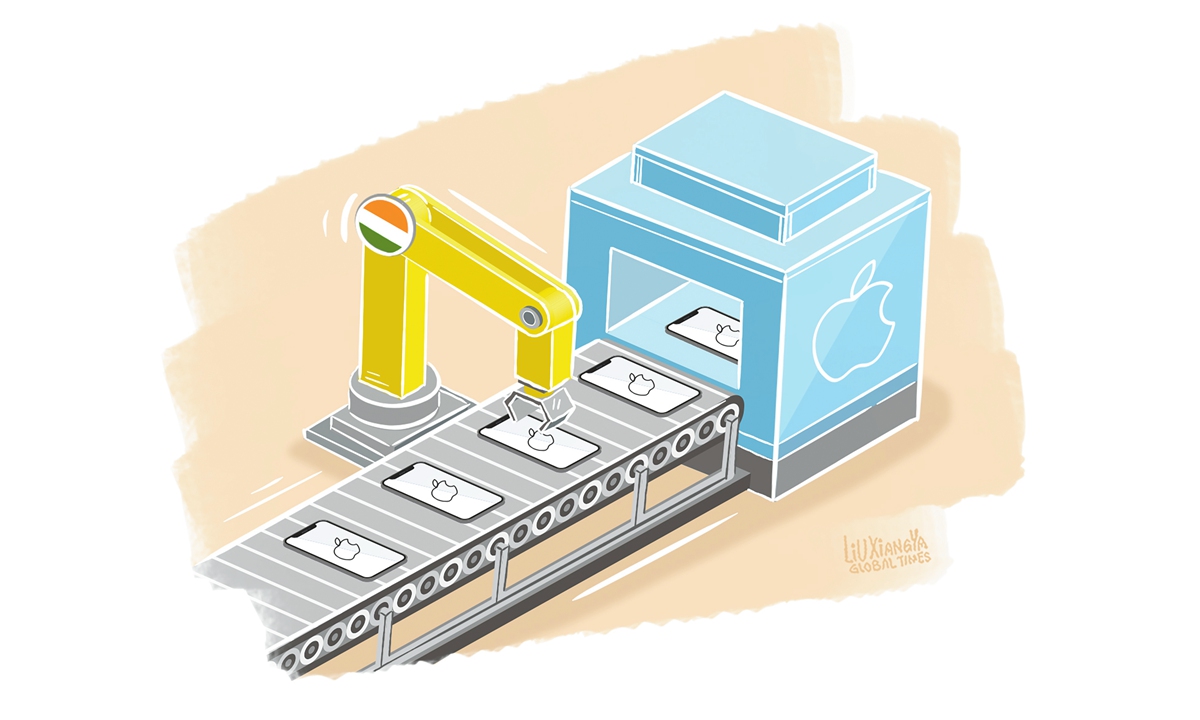
China India Photo:CFP
Chinese industry insiders and experts said India's reported plan to make it easier for Chinese citizens to get visas to visit India is positive for people-to-people exchanges between the two countries, which is facing a surge in demand in the post-pandemic era.
The remarks were made in response to media reports that the Indian government is making preparations to cut down visa delays for Chinese technicians, under the pressure of the country's business groups, Bloomberg reported on Wednesday.
However, Chinese engineers and technicians are largely wary.
An executive from a Chinese technology company told the Global Times on Thursday that the news has been circulating for a while, but it depends on when the Indian authorities will heed to the calls from the civilian sectors and take concrete steps to lessen such curbs. "In fact, in recent months the Indian government has tightened the review process for visa extensions for Chinese citizens working in India."
"The Indian government treated the issuance of visas to Chinese citizens as a bargaining chip," the person said on condition of anonymity.
There has been a rather unfair approach being practiced by New Delhi. Visa applications submitted by companies from China's Taiwan Island, or companies of a joint venture, were processed on an expedited basis to help the Indian authority to realize its ambition to build India into a semiconductor manufacturing hub, the person said. "In contrast, a very lengthy process of application is awaiting Chinese nationals."
According to Bloomberg, the Indian Department of Promotion of Industry and Internal Trade is working with the ministries of home and external affairs to lay a framework that will fast-track visas for the engineers and technicians from China, with the aim to cut down the visa processing time to within 30 days from the four to five months it currently takes.
India used to put in place a blanket restriction on visa application by Chinese nationals after bilateral ties soured under Prime Minister Narendra Modi's government since the two countries' border clash in 2020.
Chinese analysts called for New Delhi to drop its restrictive visa practices, which they refer to as a "double-edged sword" that both served the Indian purpose to look tough on China, but actually undermined its economic interests.
"China and India, the two largest developing countries in the world, are facing a surge in demand in people-to-people exchanges," Dai Yonghong, director of Institute of Area and International Studies, Shenzhen University, told the Global Times on Thursday. "Regrettably, such a demand has been suppressed by the Indian authority's visa restrictions."
Despite frayed ties, India still imports a lot of equipment from China, and many of these machines need technicians and engineers to operate and repair.
A report published by the Economic Times in June said that Indian electronics manufacturers have suffered $15 billion in economic losses and 100,000 job cuts due to escalating tensions with China. Visa delays for Chinese executives are hindering the industry's expansion plans, leading to a $10-billion export loss and $2 billion in value-added loss.
A Chinese national who recently returned from India told the Global Times that he once met two Chinese engineers maintaining facilities at an Indian industrial plant that needs over 20 Chinese technicians, resulting in production efficiency being greatly held back.
Local media estimated that India issued just 2,000 visas to Chinese nationals in 2024 from about 200,000 before the pandemic in 2019, according to Bloomberg.
Visa facilitation is an important component in a country's opening-up and business environment, streamlined visa application process increases a country's appeal to business community, investors and tourists, Dai noted, calling the Indian government to scrap visa restrictive measures for Chinese technicians, as well as Chinese government officials, scholars and tourists.
The complementarity between China and India in industrial cooperation is greater than that of India and Western developed economies, and China's advantages in technology, capital and management expertise can be of great use to India, Dai said.
"The Indian government needs to work on improving its business environment, so as not to hamper its industrialization, manufacturing sector upgrade and overall competitiveness," Dai said.
"I think the Indian government is wise enough to realize that the West may be not willing to give it the best of their technologies, capital and management," Dai said. "China should be the more suitable choice as a partner."



